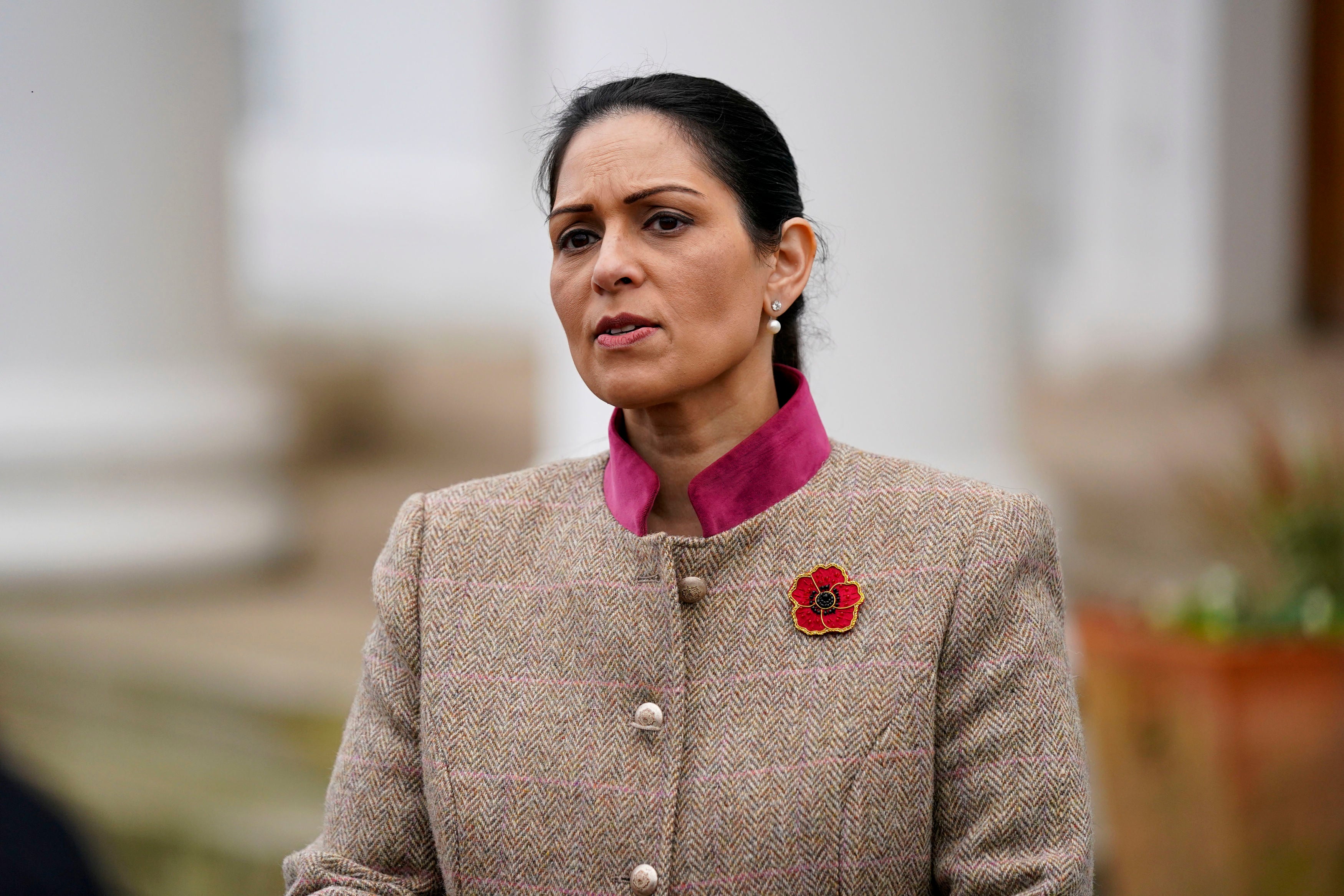Is Priti Patel right to declare Hamas a terrorist organisation?
The home secretary has outlawed the Palestinian group due to its ‘terrorist capabilities’ and in a further bid to tackle extremism, says Sean O’Grady


Priti Patel isn’t always given much of a hearing for her ideas, perhaps because her personal reputation is poor, or because the listener is predisposed to dismiss her because she is a woman of colour, and a Tory with it, or because many of her policies don’t make much sense anyway, so it saves time.
So it may well be with her proposed ban on Hamas – membership or even support for which could qualify for a 14-year prison sentence on conviction. Thus, the waving of a Hamas flag or wearing a Hamas themed T-shirt, say, anywhere in the UK would become a criminal offence under the schedules of the Terrorism Act 2000. So, indeed, might calling Hamas “friends”, as Jeremy Corbyn did some years ago (since retracted). Probably the maximum penalties under the law would not be imposed for relatively trivial offences, but the proscription of Hamas is designed to act as a strong deterrent against the display of symbols that, in the minds of many, are offensive or worse.
Ms Patel is clear that the move is aimed at antisemitic elements who use, or misuse, the cause and name of Hamas to cause deliberate offence: “Hamas is fundamentally and rabidly antisemitic,” she said. “Antisemitism is an enduring evil which I will never tolerate. Jewish people routinely feel unsafe – at school, in the streets, when they worship, in their homes, and online.
“This step will strengthen the case against anyone who waves a Hamas flag in the United Kingdom, an act that is bound to make Jewish people feel unsafe.”
It thus falls into the same category, in that respect, as someone waving a swastika around in a Jewish neighbourhood, or daubing walls or graves with the Nazi symbol, or designs with a deliberate resemblance to Nazi regalia, as is often the way with neo-fascistic organisations, and indeed some of those have been banned.
It is not so much, then, a method of controlling a wave of Hamas terror on British soil or of prohibiting all Hamas representatives in the Palestinian parliament from visiting the UK. It is much more a pragmatic attempt to reduce potential tensions on the street and the creation of what might be called a hostile environment for Jewish communities. The Hamas flag is markedly different to the Palestinian flag, sometimes used in a deliberately provocative manner, and is if anything vaguely similar to the Saudi flag. Quite often “banned” symbols and designs are replaced by those that look very similar (eg a reversed swastika or imperial-era German naval ensign) and are, arguably, technically lawful but equally menacing.
The Hamas flag ban also – explicitly – marks a blurring of the traditional distinction between the “political” and “military” wings of an organisation. Until now, only the military/terrorist elements of Hamas have been banned – the Izz ad-Din al-Qassam Brigades. It is true that often there is little real separation between armed and unarmed sections of these types of organisation. The analogy more well known in Britain is the difference between the Provisional IRA (banned) and its political arm Sinn Fein (usually not banned outright but subject to broadcasting restrictions on the “oxygen of publicity”). So Sinn Fein, when it chose to, was allowed to stand candidates and campaign in elections in the UK/Northern Ireland, even as the IRA was bombing Downing Street and shooting police officers.
Yet in due course, under the peace process, Sinn Fein was eventually habilitated into the power-sharing structures and Martin McGuinness, an IRA commander, as well as a Sinn Fein politician shook hands with the Queen as deputy first minister of Northern Ireland.
All that may be off the point, but it reminds us that the real challenge is to change minds and find political solutions.



Join our commenting forum
Join thought-provoking conversations, follow other Independent readers and see their replies
Comments